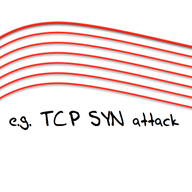
NTP for Evil
• 23 min read
In this article Geoff Huston describes attacks that involve the Network Time Protocol (NTP) and what can be done to defend against them.

Articles
Likes on articles
Geoff Huston AM is the Chief Scientist at APNIC, where he undertakes research on topics associated with Internet infrastructure, IP technologies, and address distribution policies. From 1995 to 2005, Geoff was the Chief Internet Scientist at Telstra, where he provided a leading role in the construction and further development of Telstra's Internet service offerings, both in Australia and as part of Telstra's global operations. Prior to Telstra, Mr Huston worked at the Australian National University, where he led the initial construction of the Internet in Australia in the late 1980s as the Technical Manager of the Australian Academic and Research Network. He has authored a number of books dealing with IP technology, as well as numerous papers and columns. He was a member of the Internet Architecture Board from 1999 until 2005 and served as its Executive Director from 2001 to 2005. He is an active member of the Internet Engineering Task Force, where he currently chairs two Working Groups. He served on the Board of Trustees of the Internet Society from 1992 until 2001 and served a term as Chair of the Board in 1999. He has served on the Board of the Public Internet Registry and also on the Executive Council of APNIC. He chaired the Internet Engineering and Planning Group from 1992 until 2005.
Website: http://www.potaroo.net/

• 23 min read
In this article Geoff Huston describes attacks that involve the Network Time Protocol (NTP) and what can be done to defend against them.

• 27 min read
In the long discussions about the new generic Top level Domains (gTLD), there were two technical topics that were the subject of many assertions and little in the way of observed data. The first concerned the viability of a so-called "dotless" name, where the gTLD label itself contains an IP addres…
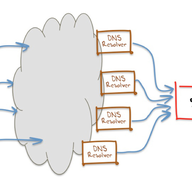
• 34 min read
Much has been said about how Google uses the services they provide, including their mail service, their office productivity tools, file storage and similar services, as a means of gathering an accurate profile of each individual user of their services. The company has made a very successful busines…

• 14 min read
The prospect of exhaustion of the IPv4 address space is not a surprise. We've been anticipating this situation since at least 1990. But it's a "lumpy" form of exhaustion. It's not the case that the scarcity pressures for IP addresses are evidently to the same level in every part of the Internet. It…
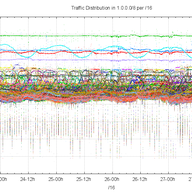
• 14 min read
One IP address is much the same as another – right? There’s hardly a difference between 192.0.2.45 and 192.0.2.46 is there? They are just encoded integer values, and aside from numerological considerations, one address value is as good or bad as any other – right? So IP addresses are much the same …
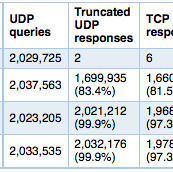
• 28 min read
In this article we are looking at possible ways to prevent denial of service attacks. One solution could be to use TCP instead of UDP for large DNS responses. We conducted an experiment to find out what the resolution failure rate would be.
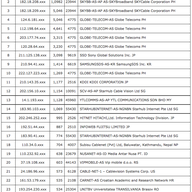
• 29 min read
Much has been said in recent weeks about various forms of cyber spying. The United States has accused the Chinese of cyber espionage and stealing industrial secrets. A former contractor to the United States’ NSA, Edward Snowden, has accused various US intelligence agencies of systematic examination…
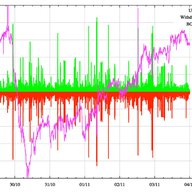
• 14 min read
The Internet has managed to collect its fair share of mythology, and one of the more persistent myths is that from its genesis in a cold war US think tank in the 1960's the Internet was designed with remarkable ability to "route around damage."
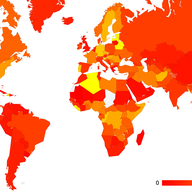
• 1 min read
At the recent ARIN XXX meeting in October 2012 I listened to a debate on a policy proposal concerning the reservation of a pool of IPv4 addresses to address critical infrastructure. The term "critical infrastructure" is intended to cover a variety of applications, including use by public Internet E…
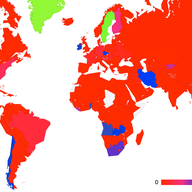
• 1 min read
This is a followup article to "Counting DNSSEC" that reflects some further examination of the collected data. This time I'd like to describe some additional thoughts about the experiment, and some revised results in our efforts to count just how much DNSSEC is being used out there.
There have been some refinements to BBR (see https://datatracker.ietf.org/meeting/102/materials/slides-102-iccrg-an-update-on-bbr-work-at-google-00) that appear to make it a more socially friendly flow control protocol. So if the RedHat release uses BBRv2 then its possible that you will see a protocol that attempts to balance its network pressures with those of loss-based protocols in a fairer manner.
“Hi Geoff, I already seen your presentation in APRICOT 2017 ( slide and youtube ) Can you tell me how to check the most active ipv6 prefixes for the last day,week or month? Thanks in advance,”
Thanks for your question. For IPv4 prefixes: http://bgpupdates.potaroo.net/instability/bgpupd.html For IPv6 it's: http://bgpupdates.potaroo.net/instability/v6-bgpupd.html Thee reports are updated every 24 hours
No, things have not changed tremendously. In fact, not much has changed at all over the past three years from the data set I have, so I'm unsure what data you have used to form that observation. Today, the overall use of Google's PDNS service in the Internet spans some 14% of the total user population. See http://stats.labs.apnic.net/dnssec/XA?c=XA&x=1&g=1&r=1&w=1&q=0 The level of use of this service is highest in Western, Middle and Eastern Africa, Oceania and Southern Africa. The lowest levels of use are found in western and northern Europe, East Asia, and Australia and New Zealand. (see the country table at the URL given above)
Hi Todd, It's always difficult to say what happened from a distance and probably only Dyn (or presumably the attackers) have direct knowledge of what happened and the rest of use can only speculate. It appears to be a pretty safe assumption that Mirai was used, and the source code of Mirai contains a smorgasbord of potential attacks, of which generating DNS queries is just one. So two weeks later it looks like its reasonable to assume that the attack contained a notable DNS component. More to the point, I was wondering if we could use the DNS (and potentially DNSSEC) to protect itself from DNS-based attack incidents and, if so, how we could do so.
Showing 4 comment(s)